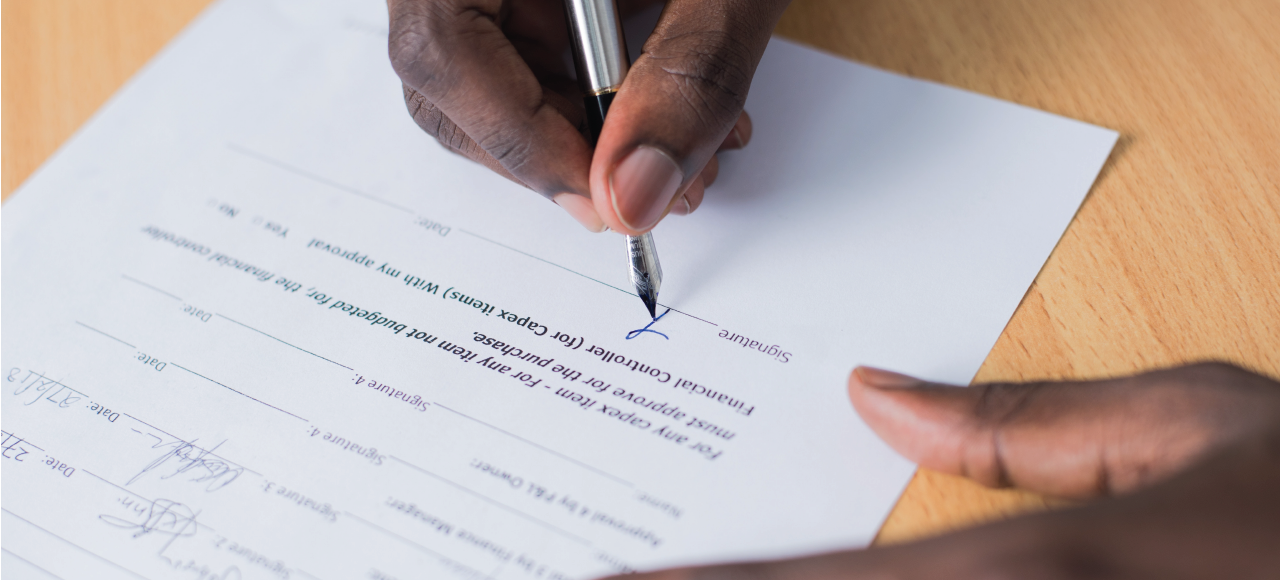Forming an effective estate plan can involve many documents. These essential estate planning documents can fall into several categories including
- Personal
- Financial
- Medical documents
Some may require the assistance of an estate planning attorney for consultation or preparation. Others will simply require that you have them readily available when needed.
Let’s examine some of these items to see which may be relevant to your situation.
Personal
Several personal documents will be a part of your estate plan. These may include but are not limited to:
- Birth certificates and adoption papers
- Citizenship documents
- Military discharge records
- Powers of attorney
- Various will and trust documents
Some of your estate planning documents may require the assistance of an attorney to draft and periodically update. For those with unique circumstances, there may be additional attention required when preparing the legal documents
Common Estate Planning Mistakes to Avoid >> Watch Webinar
These unique circumstances include but are not limited to:
- Those with blended families (children from a previous marriage, for example)
- Those who are business owners
- Those who have family members with special needs or substance addiction
- Those whose total assets may be subject to the estate tax.
Those who fall into any of these categories should take additional care to make sure those specific issues are addressed in their legal documents. This includes updating any documents that were drafted when one or more the circumstances were not yet relevant. For example, if you drafted your documents when you were married, but have since divorced.
Financial
Financial Documents
Everyone’s financial situation is unique and so is the paperwork associated with their financial holdings. Relevant documents may include:
- Real estate deeds and mortgage statements
- Income tax returns and property tax payment records
- Titles for automobiles, boats, motorcycles and other items
- Lease agreements and information
- Statements related to outstanding debts or loans
Accounts
Statements for a variety of accounts are important, including but not limited to bank checking and savings accounts, brokerage accounts, retirement accounts held in brokerage accounts and those at former or current employer plans, credit card statements and a variety of other accounts.
Social Security
Both your social security card and benefits statement should be retained. More information is available at SSA.gov where you can create an account if you’ve not yet done so.
Stocks and Bonds
Keep in mind that some assets such as stocks and bonds may be held in a brokerage account or via physical certificate. Consider placing assets that are currently held physically into brokerage accounts at your custodian of choice in the case of stocks and bonds and registering U.S. Savings Bonds online at TreasuryDirect.gov. This will reduce the risk of misplacing these assets.
If a new account is created to hold the assets, be sure to save a statement along with your others. Misplacing a physical security can be quite expensive and time-consuming.
If you have lost or damaged a physical asset, contact the company’s transfer agent immediately to issue a “stop transfer” and follow the instructions they provide for replacement.
Expect to pay around 1% or 2% of the value of the security. It will be much easier for you to place your certificates in a brokerage account to be inherited by beneficiary designation than to have your heirs deal with the transfer of each certificate after death.
Business Owners
If you’re a business owner you may have additional documents related to your business or practice which may include partnership agreements, information regarding stock options, additional business tax returns, or buy/sell agreements.
Your business may also own real estate, intellectual property, and patents which may have additional legal documents. This is only a partial list. There may be more documents depending on what type of business entity you own and your stake in the organization.
Pets
One unexpected area of relevance that should go in the financial section is any provision for the care of pets. Be sure to specify how you wish the pet to be cared for from a financial standpoint, without giving to the pet directly, since animals can’t legally own property. You may, for example, provide a monetary stipend to your friend, family member or shelter who will receive the pet.
Medical
Having Medical and Insurance information readily available is useful in estate planning. Some of the items you’ll wish to gather include:
- The contact information for your primary care physician and other healthcare professionals
- Your living will
- Insurance policies including those for:
- Life
- Health
- Long-term care
- Other types you may own
Information regarding organ donation is also important. If you wish to get more information or enroll to be a donor, visit OrganDonor.gov which will allow you to select your state for registration.
Digital Considerations
Some of the above information we have gone over can be stored online, either through individual accounts, online aggregators that allow for multiple logins, or in document vaults. Be sure that you discuss how to make these items easily accessible to your heirs while still maintaining account security.
Social Media Accounts
Some users of social media platforms have specific wishes for the treatment of the account after their life, including termination of the account, maintaining without subsequent changes, or continued management by someone else – this is often the case for public figures.
Be sure to check the specific policy of the platforms you are using. Most have specific policies regarding continued use on behalf of a deceased account holder.
Financial Professionals
Your relationship with many of the financial professionals you interact with may transition to your heirs as well. The attorneys, accountants and financial planners who drafted your estate planning documents, filed your returns while alive and managed your investment accounts may remain relevant when your heirs need to handle your estate.
Your heirs may need to discuss something about your trust with the attorney, file your final return with your accountant and discuss required minimum distributions from your retirement accounts with your financial planner.
These are only a few examples of how these relationships may transition to the following generation. While completing your estate plan, it may be useful to make an introduction to these professionals who may assist your family members in the future.











